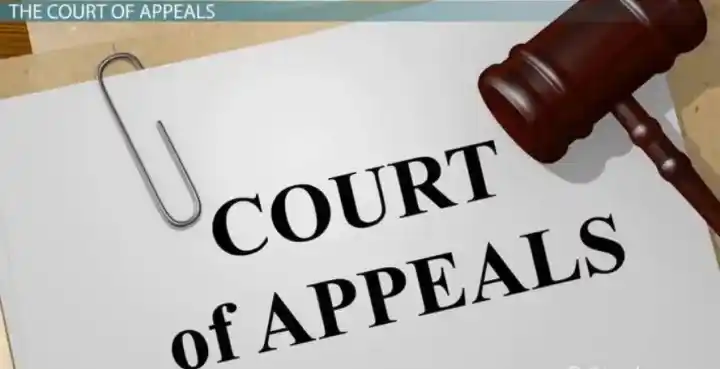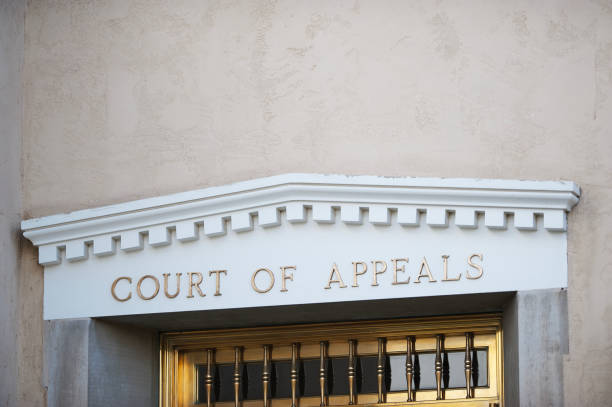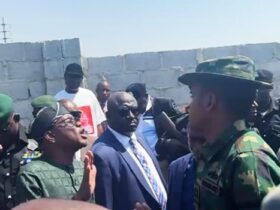The Nigerian judicial system is poised for a landmark constitutional confrontation as the Court of Appeal in Abuja fixed April 8, 2025, for the hearing of multiple suits challenging the conduct of elections in Kano State’s 44 Local Government Areas. This legal battle, which has been brewing since October 2024, represents more than just a local election dispute – it touches on fundamental questions about Nigeria’s federal structure, the independence of electoral bodies, and the delicate balance of power between state and federal authorities.
Background of the Legal Dispute
The current legal imbroglio traces its origins to October 22, 2024, when Justice Simon Amobeda of the Federal High Court in Kano delivered a sweeping judgment that effectively halted all preparations for local government elections in the state. The ruling came in response to a suit filed by Aminu Aliyu Tiga and the All Progressives Congress (APC), who challenged the composition and neutrality of the Kano State Independent Electoral Commission (KANSIEC).
Justice Amobeda’s ruling contained several groundbreaking pronouncements that sent shockwaves through Nigeria’s political landscape. First, he declared that KANSIEC officials were disqualified from conducting elections because they were established card-carrying members of the ruling New Nigeria People’s Party (NNPP) in Kano State. This, the judge ruled, violated Sections 197 and 200 of the 1999 Constitution, which require electoral officials to maintain political neutrality.
The Far-Reaching Consequences of the Federal High Court Ruling
Beyond disqualifying KANSIEC officials, Justice Amobeda’s judgment included several other consequential orders:
- He barred the Independent National Electoral Commission (INEC) from releasing any part of the national voter register to Kano State for the purpose of conducting the local government polls.
- He restrained all security agencies – including the Nigeria Police Force and Department of State Services (DSS) – from providing security or participating in any way during the local government elections.
- He effectively froze the entire electoral process until Kano State could establish a properly constituted electoral commission that met constitutional requirements for neutrality.
These orders created a constitutional crisis of sorts in Kano State, leaving the local government administration in limbo and raising urgent questions about democratic governance at the grassroots level.
Kano State House of Assembly’s Appeal: Challenging Federal Jurisdiction
The Kano State House of Assembly, represented by Senior Advocate of Nigeria Chief Adegboyega Awomolo, has mounted a vigorous challenge to Justice Amobeda’s ruling at the Court of Appeal. Their appeal rests on several substantive legal arguments that go to the heart of Nigeria’s federal structure:
- Jurisdictional Challenge: The Assembly contends that the Federal High Court lacked jurisdiction to entertain matters relating to local government elections, which they argue are purely state affairs under Nigeria’s federal system. They maintain that only the Kano State High Court has the authority to adjudicate disputes arising from local government elections.
- Locus Standi: The appellants argue that the original plaintiffs (Aminu Aliyu Tiga and APC) lacked the legal standing to bring the case in the first place, as they were not directly affected by the composition of KANSIEC.
- Statute of Limitations: The Assembly claims the suit was statute-barred when filed, having been brought outside the legally prescribed time limit for such challenges.
- Constitutional Interpretation: They argue that Justice Amobeda misinterpreted Sections 197 and 200 of the Constitution regarding the political neutrality of state electoral officials.
- Federal Overreach: Underlying all these arguments is the fundamental contention that the Federal High Court’s intervention represents an improper intrusion into state matters, contrary to the principles of federalism enshrined in the Constitution.

The Constitutional Dimensions of the Case
Legal experts following the case identify several critical constitutional issues at stake:
- Federalism and State Autonomy: The case tests the boundaries of state autonomy in Nigeria’s federal system, particularly regarding the organization of local government elections.
- Separation of Powers: It raises questions about the proper role of federal judiciary in matters traditionally reserved for state courts.
- Electoral Integrity: The case examines the constitutional requirements for political neutrality of electoral officials at all levels.
- Judicial Precedent: The outcome could establish important precedents for how similar cases are handled in other states.
Professor Ibrahim Sani, a constitutional law expert at Bayero University Kano, notes: “This case goes beyond Kano State. It’s about defining the constitutional relationship between federal and state institutions in electoral matters. The Court of Appeal’s decision could reshape Nigeria’s federal structure in significant ways.”
Political Undercurrents and Implications
Beyond the legal arguments, the case carries significant political implications:
- NNPP-APC Rivalry: The dispute reflects the intense political competition between the ruling NNPP in Kano and the opposition APC, which controls the federal government.
- Local Government Control: With 44 LGAs, Kano represents the largest concentration of local governments in Nigeria, making control of these councils politically and financially significant.
- Precedent for Other States: The outcome could influence how local government elections are conducted nationwide, particularly regarding the neutrality of state electoral commissions.
- 2027 Elections: Some analysts view this as an early skirmish in the battle for Kano ahead of the 2027 general elections.
Potential Outcomes and Their Consequences
As the case heads to hearing on April 8, several scenarios could emerge:
- Affirmation of Federal High Court Ruling: If the Court of Appeal upholds Justice Amobeda’s decision, Kano State would need to completely reconstitute KANSIEC with politically neutral officials before proceeding with elections.
- Overturning the Judgment: A reversal would allow KANSIEC to continue with election preparations under its current structure, likely leading to immediate local government polls.
- Partial Victory: The court could strike a middle ground, upholding some aspects of the ruling while rejecting others.
- Referral to Supreme Court: Regardless of the outcome, the losing side is almost certain to appeal to the Supreme Court, prolonging the legal battle.
Each potential outcome carries significant consequences for governance in Kano State and potentially for Nigeria’s broader constitutional framework.
Broader Implications for Nigerian Democracy
This case highlights several critical challenges in Nigeria’s democratic development:
- Electoral Integrity: It underscores ongoing concerns about the impartiality of electoral bodies at all levels.
- Judicial Federalism: The case tests whether Nigeria’s court system properly reflects the country’s federal structure.
- Local Government Autonomy: It brings into sharp focus the continuing debate about the proper role and independence of local governments.
- Party Politics vs Governance: The dispute reveals how party politics often interferes with administrative and governance matters.
The Road Ahead
As the April 8 hearing date approaches, all eyes will be on the Court of Appeal’s panel led by Justice Georgewill Ekanem. Their decision could:
- Resolve the immediate impasse in Kano’s local government administration
- Clarify the jurisdictional boundaries between federal and state courts
- Establish new precedents for the conduct of local elections nationwide
- Potentially trigger further appeals to the Supreme Court
The case represents a critical juncture in Nigeria’s ongoing constitutional evolution, with ramifications that could extend far beyond Kano State’s borders. Whatever the outcome, it will undoubtedly shape the landscape of local governance and electoral administration in Nigeria for years to come.
Conclusion
The Kano local government election dispute before the Court of Appeal encapsulates the complex interplay between law and politics in Nigeria’s federal system. As the hearing date approaches, the case has grown from a local electoral matter into a constitutional litmus test for Nigeria’s democracy. The Court of Appeal’s decision will not only determine when and how Kano citizens can elect their local leaders but could also redefine the boundaries of state autonomy in electoral matters. With so much at stake, the April 8 hearing promises to be a defining moment in Nigeria’s ongoing democratic journey.
















Got a Questions?
Find us on Socials or Contact us and we’ll get back to you as soon as possible.